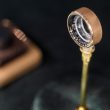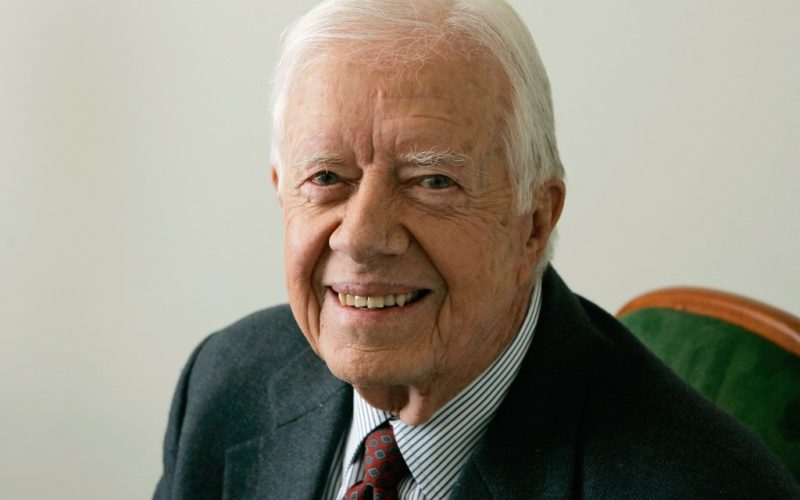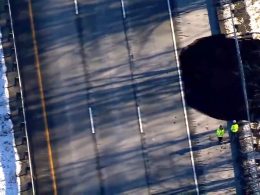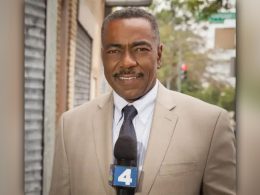Former President Jimmy Carter, the God-fearing Georgia peanut farmer who survived a disastrous one-term White House stay to launch a second career as a Nobel Prize-winning advocate for global human rights, died Sunday at 100.
Carter went into hospice care at home on Feb. 18 after a short series of hospital stays, the Carter Center charity organization said at the time. The ex-commander-in-chief opted to spend his final days with family rather than seek any additional medical intervention. His son Chip confirmed his death, at his home in Plains, to the Atlanta Journal-Constitution.
His wife of 74 years, Rosalynn Carter, preceded him in death on Nov. 19, 2023. The 39th president was in attendance at her memorial service Nov. 28, where, seated in a wheelchair with a blanket over his lap, he appeared frail and was unable to speak, according to family. Hus daughter Amy delivered remarks on his behalf at the service.
Carter, a Democrat, lived longer than any other U.S. president, earning that distinction in 2019 when he reached 94 years and 172 days old.
Relegated to the historical sidelines after a four-year presidency mired in malaise, Carter rebounded to write 32 books, build houses for the poor, stand up to tyranny abroad and capture the coveted Nobel Peace Prize in 2002.
Carter took office in 1977. With his victory over incumbent Gerald Ford, he aimed to restore faith in America and its government after the nightmare of Watergate forced President Nixon to resign in disgrace.
But his own term was plagued by rampant inflation, long gas lines, wars in Afghanistan and Nicaragua, and a 444-day hostage crisis in Iran — the latter low-lighted by an embarrassingly failed rescue attempt.
Carter’s bid for re-election was crushed by Republican Ronald Reagan, sending the former commander in chief back to Georgia a beaten man, deeply unpopular and seemingly destined for obscurity.
Carter instead grabbed a hammer, climbed a ladder and built houses for the poor with Habitat for Humanity. He boarded planes to monitor elections abroad and broker peace deals. And he returned to his church in Plains, Ga., to teach Sunday school.
“I have one life and one chance to make it count for something,” Carter told his biographer, Jim Wooten, in 1995. “My faith demands that I do whatever I can, wherever I am, whenever I can, for as long as I can, with whatever I have, to try to make a difference.
“Most of the time, believe it or not, I enjoy myself.”
James Earl Carter, Jr. was the first American president born in a hospital — Wise Sanitarium in tiny Plains, Ga., where his mother worked as a nurse.
He was raised without electricity or plumbing on his family’s nearby peanut farm. The backwoods town of 600 residents would remain Carter’s beloved and modest home for the rest of his life.
His father Earl was an enthusiastic segregationist. But his mother, known to all as Miss Lillian, made a point of caring for poor Black women while cheering on Black boxer Joe Louis and baseball’s color-line defying Jackie Robinson of the Brooklyn Dodgers.
Carter joined the Navy in 1943 to see the world and did so well at Annapolis that he earned a place in the new, elite nuclear submarine program. Nine years later, Carter helped build the reactor for the first nuclear sub and did graduate work in nuclear physics at Union College.
The following year, he went home to save the ailing family farm, and with new bride Rosalynn, welcomed three sons and a daughter. He became a deacon at Plains Baptist Church, served on civic boards and in the Georgia state senate.
Carter won the Georgia governorship in 1970, at least in part by cozying up to segregationists, who were then furious when he declared the time for racial discrimination was over.
Carter soon began outlining the remarkable national campaign that propelled “Jimmy Who?” past a half-dozen high-profile Democrats to the party’s presidential nomination.

He stressed his honesty, sincerity, Christianity and outsider status — the perfect panacea for voters in the aftermath of Watergate and Vietnam.
Despite some gaffes — he nearly blew a 30-point lead after infamously confessing to Playboy that he had “lusted in my heart” after other women — Carter vanquished Ford in the bicentennial year of 1976.
He tried from the start to return humility to the White House. Carter walked the inaugural parade route rather than ride in a limo, banned the playing of “Hail to the Chief,” carried his own luggage and personally kept the schedule for the White House tennis court.
But his outsider status didn’t play well on Capitol Hill, where Democratic party leaders regarded him as sanctimonious and balked at his agenda.
His younger brother, Billy, who hawked Billy Beer and got drunk in public, didn’t help when he cozied up to Libyan officials and collected $220,000 from the nation’s government. A bizarre attack by a rabid swimming rabbit during a fishing trip added to Carter’s hapless image.
His big foreign policy achievement — personally brokering the 1978 Camp David peace treaty between Israel and Egypt — failed to save him.

Though he never actually said the word, a malaise settled over his White House.
In 1980, voters overwhelmingly chose Reagan’s sunny optimism over Carter’s gloomy warnings about cutting back and conserving. He lost 44 states in the general election.
The undaunted political has-been went on to found The Carter Center, which pioneered election monitoring and sent watchdogs to 81 elections in 33 countries. Carter personally traveled on peace missions to Haiti, Bosnia, Ethiopia, North Korea, Sudan, Nepal and Colombia.
Though criticized for talking to despots, dictators and tyrants, his rebuttal was always simple: “I’ll talk with anybody who wants to talk about peace.”
Carter insisted his presidency was more successful than people remember, noting recently that the United States military never launched a missile or dropped a bomb under his watch.
Carter announced in August 2015 that he had cancer after having surgery to remove a small mass from his liver. Though the cancer spread to his liver and brain, the battled-toughened old politician pulled through.
He was survived by his three sons, Jack, Chip and Jeff; a daughter, Amy; and 11 grandchildren, including one who captured grandfather’s old seat in the Georgia state senate.








